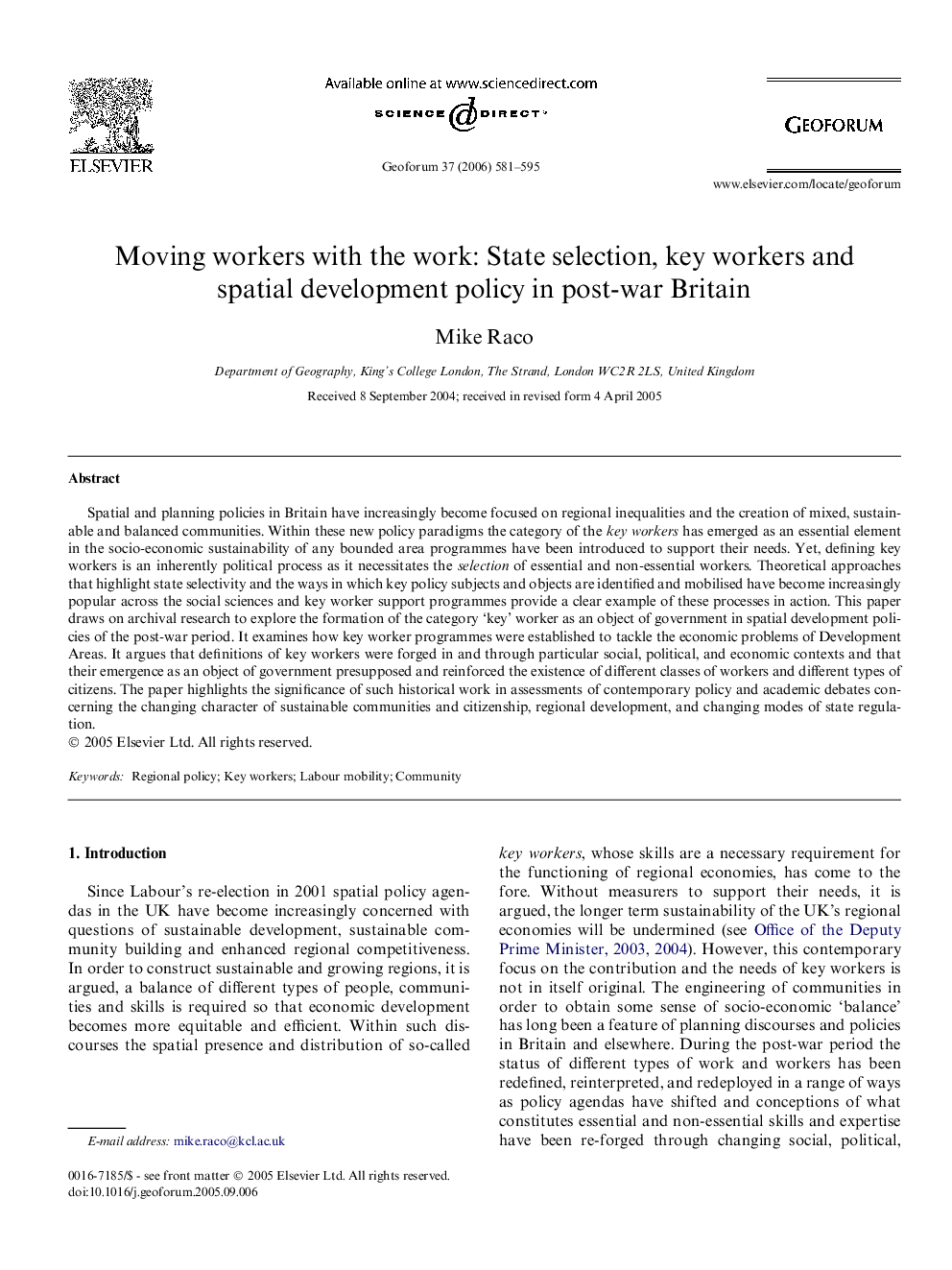| Article ID | Journal | Published Year | Pages | File Type |
|---|---|---|---|---|
| 5075154 | Geoforum | 2006 | 15 Pages |
Abstract
Spatial and planning policies in Britain have increasingly become focused on regional inequalities and the creation of mixed, sustainable and balanced communities. Within these new policy paradigms the category of the key workers has emerged as an essential element in the socio-economic sustainability of any bounded area programmes have been introduced to support their needs. Yet, defining key workers is an inherently political process as it necessitates the selection of essential and non-essential workers. Theoretical approaches that highlight state selectivity and the ways in which key policy subjects and objects are identified and mobilised have become increasingly popular across the social sciences and key worker support programmes provide a clear example of these processes in action. This paper draws on archival research to explore the formation of the category 'key' worker as an object of government in spatial development policies of the post-war period. It examines how key worker programmes were established to tackle the economic problems of Development Areas. It argues that definitions of key workers were forged in and through particular social, political, and economic contexts and that their emergence as an object of government presupposed and reinforced the existence of different classes of workers and different types of citizens. The paper highlights the significance of such historical work in assessments of contemporary policy and academic debates concerning the changing character of sustainable communities and citizenship, regional development, and changing modes of state regulation.
Related Topics
Social Sciences and Humanities
Economics, Econometrics and Finance
Economics and Econometrics
Authors
Mike Raco,
